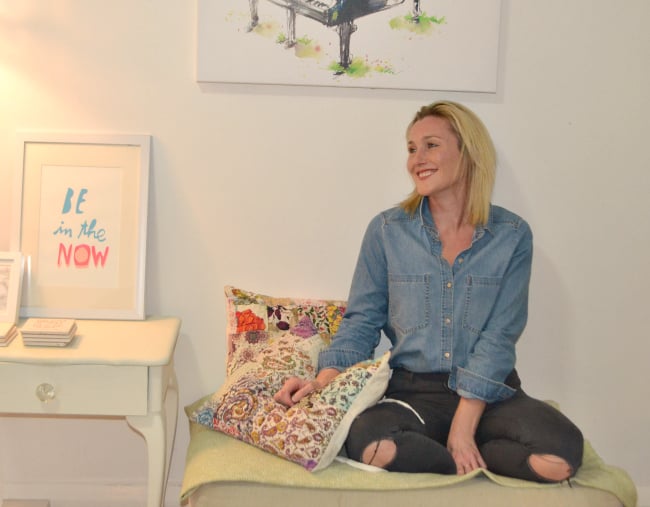
Alison Henley doesn’t remember the moment she was diagnosed. Aged just 16 at the time, the doctor’s words were subsumed by white noise, by the cloaking numbness that comes with shock.
She was living with Mayer-Rokitansky-Küster-Hauser Syndrome – a condition affecting roughly one in 5000 women that’s characterised by the underdevelopment or absence of the vagina, cervix and uterus.
Physical examination, a laparoscopy and an ultrasound had shown that Alison’s vagina was roughly the length of the nail on her big thumb, her uterus missing entirely. Like many women with MRKH, it was the absence of menstruation that raised alarm bells.
“It’s so left-field you don’t even assume that this can happen, that these two parts of the female body will just stop forming,” the 37-year-old British-born woman told Mamamia.
“As we grow up we think there’s an automatic passage through to parenthood and partnership, we just assume they’re the two things we’ll do with ease. And so when you’re told you can’t perform as a partner in terms of sexual intercourse and that you would never be able to experience pregnancy…
“I was already a teenager who was experimenting in not liking herself very much. My self-esteem was quite low. And [the diagnosis] just gave me licence to validate that. I was in a poor relationship with food and self harm. And that’s what I turned to for many, many years.”
Alison underwent treatment in London within weeks of her diagnosis. While surgical options are available for some women with MRKH, she opted to use the dilatory method to create a vagina. This involves the repeated manual insertion of dilators – cylindrical tubes that stretch the existing, shortened vaginal tissue. Alison spent four days in hospital to be guided through this process.

Top Comments
Another incredible story..Hope someone is out there. I'm new here, so just finding my feet. And I'm asking for my dear friend..She found out she has MRKH at the age of 18 in the usual tragic devastating way. To think that it's been 11 years! She now has a supportive partner who loves her for her!
I believe that the saddest, most tragic part of MRKH is that it's not spoken about. If someone has cancer, at least then the family can talk about it.
Her mum and dad do not speak to her about this anymore. It's swept under the rug like last winter's dust! Yet for her, the pain is often so real, so raw and so hard, that how could she survive it alone??
She cries numerous times uncontrollably. It's like you are crying from the deepest part of your soul...Crying for all the children you will never ever have!..This is heartbreaking..
They're seriously considering turning to surrogacy to have a baby. At least her dh is fully there. Which can't be said about my dear sweety..She's so scared..Moreover this is a huge financial burden , I think she hesitates they'll cope..Still Pete is looking onto surrogacy abroad as it's going to be cheaper due to his calculations..I'm just trying to find ways to help them somehow. .Or at least find some supportive/comforting words to ease the pain. I love them so much, great people they are and I'm sure no one deserves MRKH! No one!